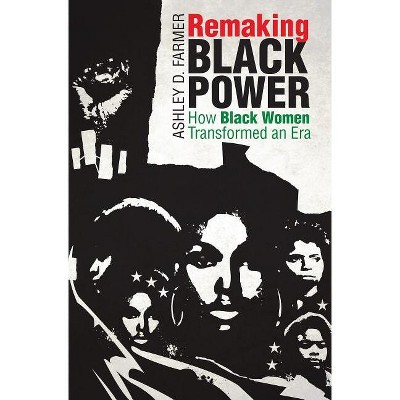Sponsored

Chained in Silence - (Justice, Power, and Politics) by Talitha L Leflouria (Paperback)
In Stock
Sponsored
About this item
Highlights
- In 1868, the state of Georgia began to make its rapidly growing population of prisoners available for hire.
- About the Author: Talitha L. LeFlouria is associate professor and fellow of the Mastin Gentry White Professorship in Southern History at the University of Texas at Austin.
- 280 Pages
- History, African American
- Series Name: Justice, Power, and Politics
Description
About the Book
"Portions of the text were previously published as 'The Hand That Rocks the Cradle Cuts Cordwood: Exploring Black Women's Lives and Labor in Georgia's Convict Camps, 1865-1917, ' Labor: Studies in Working-Class History of the Americas 8, no. 3 (fall 2011)"--Copyright page.Book Synopsis
In 1868, the state of Georgia began to make its rapidly growing population of prisoners available for hire. The resulting convict leasing system ensnared not only men but also African American women, who were forced to labor in camps and factories to make profits for private investors. In this vivid work of history, Talitha L. LeFlouria draws from a rich array of primary sources to piece together the stories of these women, recounting what they endured in Georgia's prison system and what their labor accomplished. LeFlouria argues that African American women's presence within the convict lease and chain-gang systems of Georgia helped to modernize the South by creating a new and dynamic set of skills for black women. At the same time, female inmates struggled to resist physical and sexual exploitation and to preserve their human dignity within a hostile climate of terror. This revealing history redefines the social context of black women's lives and labor in the New South and allows their stories to be told for the first time.Review Quotes
"A deeply researched and carefully crafted mouthpiece for black female convict laborers." --American Historical Review
"A meticulously researched, and immensely illustrative record of the understudied labor efforts made by thousands of black female convicts in the post-Civil War South." --Punishment and Society
"A much-needed and distinctly gendered perspective on carceral roots of both antiblack racism and resistance to it, a history that can be silenced no longer." --Journal of American History
"A well-written, accessible, provocative study of black women's lives in Georgia's convict-labor system at the dawn on the New South. . . . Surely one of the best books out on southern women's history in years." --Register of the Kentucky Historical Society
"An indispensable reference point." --Journal of Southern History
"Highly recommended." --CHOICE
"Leaves us with a radically new understanding of the historical dimensions of racism, gender, and state violence." --Elizabeth Hinton, The Nation
"Reads as a tour de force-- a gripping history that insists on speaking the names and remembering the lives of long-forgotten working-class black women caught up in the violent, exploitative system of convict labor in post-emancipation Georgia. . . . Painstakingly researched, beautifully written, and certain to become a classic in the literature on labor, race and the criminal justice system, as well as black women's history." --Social Service Review
"Shows how attention to the experiences of incarcerated women-- nearly all of them African American-- casts new light on a neglected corner of the New South's cruel penal system." --Social History
"This beautifully written book leads its readers on the journey from Emancipation to the devastating convict-leasing system in Georgia. . . . [and] examines the exploitation of black women's bodies, the beginnings of mass incarceration, and the rise of the modern New South." --Erica Armstrong Dunbar, The Nation
About the Author
Talitha L. LeFlouria is associate professor and fellow of the Mastin Gentry White Professorship in Southern History at the University of Texas at Austin. Her research was featured in the documentary Slavery by Another Name, based on Douglas A. Blackmon's Pulitzer Prize-winning book.
Shipping details
Return details
Trending Non-Fiction

















